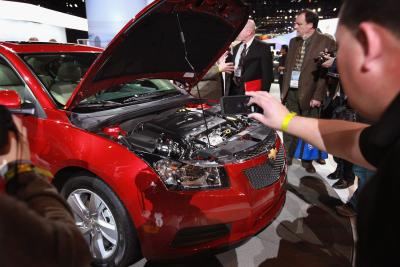
Compared to their naturally aspirated cousins, turbocharged engines are thoroughbred racehorses. These engines require all the maintenance and care of less-gutsy power plants but have a few special requirements. The high-heat loads and pressurized plumbing of a turbo engine mean that the end user must pay a bit more attention to the mechanics in order to retain original levels of power and reliability.
The importance of good oil in a turbocharged engine simply cannot be overstated. Although conventional engines can get away with lubrication that does nothing but keep things slick, the oil in a turbocharged engine is responsible for both lubricating and cooling the turbocharger itself. The high heat encountered in the turbocharger's bearings will quickly begin to cook the contaminants found in all conventional motor oils, causing sludge and engine failure.
The use of full synthetic oil is an expensive but necessary precaution, and a good investment in longevity. Always use a full synthetic, and switch to one if you're not using it already. Turbocharged engines that have been run with conventional oils should get a full oil flush and replacement as soon as possible. Synthetic oil is probably the single best thing you can do for your turbo engine.
Turbochargers put a lot of stress on the fuel system, so its maintenance should be at the top of your list. It's never a bad idea to run a fuel system cleaner in any car on a regular basis, but turbocharged engines are especially sensitive to disruptions and irregularities in fuel supply. Using a quality injector cleaner on every other tank of fuel will help keep things clean and clear, as will changing your fuel filter at least every 40,000 miles.
Turbo engines produce a lot of heat, so it's important that their cooling systems are able to shed it. Flush your cooling system at least every 20,000 miles, and always use a quality antifreeze. It's worth remembering that antifreeze does more than prevent freezing; it also lubricates cooling system parts and helps prevent heat-induced leakage. An efficient cooling system is especially important on cars that have a water-cooled turbocharger. Redline Oils makes an excellent coolant additive called Water Wetter, which can reduce coolant temperatures by up to 30 degrees on a hot day.
The pressurized intake system in many turbocharged engines will develop small leaks over time, which bleed off boost pressure and cost power. Check for leaks by spraying soapy water around the rubber coupling of your engine's turbo-to-intake manifold ducting while the engine is running. Bubbles indicate a leaking, which should be dealt with promptly.